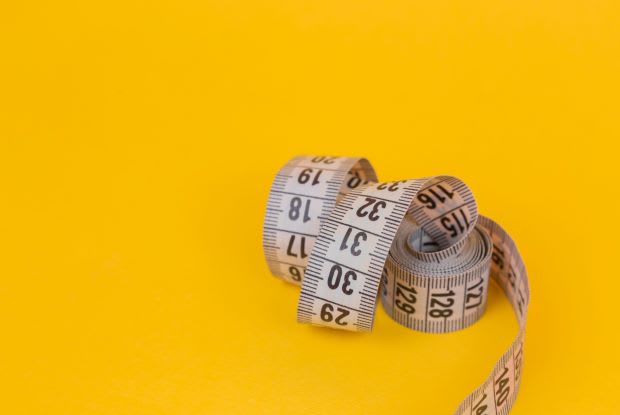Table of Contents
IV. Can Being Overweight Cause Erectile Dysfunction?
V. The Effect of Obesity on Sexual Health
What is Obesity?
Obesity is an increasingly prevalent public health concern across the United States of America and the world. If you have abnormal or excessive fat, you may be at risk for health problems in the future. As of 2016, the World Health Organization reports that 1.9 billion adults worldwide are overweight and 650 million people are classified as obese. Over four million people die each year as a result of being overweight or obese. [1]
If you are overweight or obese, your daily activities may be significantly affected. Carrying excess weight on your body’s frame can make it difficult to perform the simplest activities like climbing stairs or standing for a prolonged period. Everyday difficulties caused by obesity may begin to bleed into the bedroom. So, does obesity increase the risk of erectile dysfunction?
There are many risk factors that increase the risk of ED, including physical and psychological factors. It’s important to understand what erectile dysfunction is, its risk factors, and how it’s treated if you experience ED. Obesity can fall into both physical and psychological categories, so it is usually considered a major risk factor while diagnosing erectile dysfunction. Medications such as generic Cialis and Viagra can be helpful in combatting symptoms, but you may need to focus on changing your diet and lifestyle habits if you are obese. If you want to buy Viagra online, you can save money through Canadian Med Center. Read on to learn more about the connection between ED and obesity. Obesity is measured through a tool called the Body Mass Index (BMI). BMI is a numerical value derived from dividing a person’s weight in kilograms by the square of their height in meters. There are many calculators online where you can input your height and weight to find your BMI quickly. Regardless of online calculators, your doctor has the final say on your BMI classification. BMI classifications include: The rate of obesity has increased dramatically in the last few decades. There are several factors involved in the rise of obesity, which may also be related to the rise of ED cases and usage of medications like Cialis 20 mg (tadalafil) and Viagra (sildenafil). The cause of obesity is an imbalance of calories consumed and calories burned. The following factors may also increase the rate of obesity: As mentioned above, obesity can be a physical and psychological cause of erectile dysfunction symptoms in men. One Polish study published through the National Center for Biotechnology Information found that obesity is an independent risk factor for ED in men. This study found that 79 percent of men who suffer from sexual dysfunction symptoms have a BMI of 25 or greater. It was also found that men with a BMI of 25-30 are 1.5 times more likely to experience ED symptoms. Finally, those with a BMI over 30 are three times more likely to have sexual dysfunction. [2] Obesity is associated with a multitude of health conditions, including cardiovascular diseases and diabetes. These conditions are also associated with erectile dysfunction, so obesity is a compounding factor. It was also found that ED in obese men is more common than ED caused by aging. Not only does obesity increase your risk of medical conditions that also cause ED, but there are theories that the presence of excess fat may also lead to sexual dysfunction. Researchers suggest that excess fat can cause body-wide inflammation, causing free radicals in the body to damage tissues, including those in the penis. If you are living with obesity, you are two to three times more likely to develop diabetes, which is another risk factor associated with ED. Once you have diabetes or another vascular disease, your blood vessels will be affected over time. If blood flow to the penis is inhibited by narrowed blood vessel walls, successful erections may become unattainable. Another common cause of ED is low testosterone, which is often linked with obesity. If you have too much belly fat, your testosterone levels may be thrown off balance. Excess stomach fat can convert testosterone to estrogen, interfering with your hormones. This typically does not happen quickly, but it is a potential concern if you have been obese or overweight for a long period. If you are concerned that your weight is affecting your sex life, you may want to talk to your doctor for a proper diagnosis. The physical ramifications of obesity play a big role, but the psychological toll and lack of body confidence can also affect your performance in the bedroom. Regardless of the root cause of your ED, it is important to maintain a healthy weight for the success of your sexual relationships and overall health. Cialis and Viagra may be prescribed if your doctor deems you eligible, but the incorporation of a diet and exercise routine can increase the chance of a successful treatment plan. [3] You can save money on your prescription by purchasing Viagra online through a certified online pharmacy. Visit our site to learn more today. The content in this article is intended for informational purposes only. This website does not provide medical advice. In all circumstances, you should always seek the advice of your physician and/or other qualified health professionals(s) for drug, medical condition, or treatment advice. The content provided on this website is not a substitute for professional medical advice, diagnosis, or treatment.
Measuring Obesity
What Causes Obesity?
Can Being Overweight Cause Erectile Dysfunction?

The Effect of Obesity on Sexual Health

